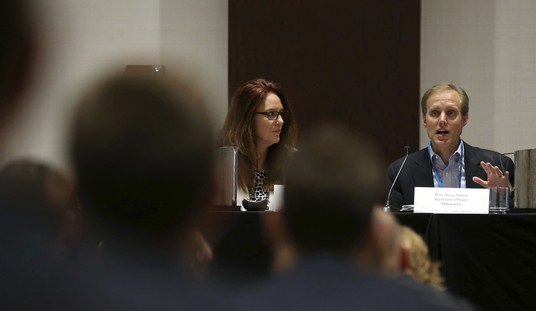Some days I understand why Tom Lehrer gave up on political satire. It’s impossible to satirize politicians as effectively as they do themselves. Politico reports that Larry Summers, the chair of Barack Obama’s economic council, has a rather peculiar metric to measure the administration’s success on economic policy:
Of all the statistics pouring into the White House every day, top economic adviser Larry Summers highlighted one Friday to make his case that the economic free-fall has ended.
The number of people searching for the term “economic depression” on Google is down to normal levels, Summers said.
Search for the term were up four-fold when the recession deepened in the earlier part of the year, and the recent shift goes to show consumer confidence is higher, Summers told Peterson Institute for International Economics.
I wonder whether a Google search metric falls within the Keynesian or Friedman schools of economic thought. If I had to guess, which is apparently what Summers is doing when he’s not busy counting Google searches, I’d say it falls within the Marx school of economic thought …. Groucho Marx.
When asked for something more related to economics and fiscal policy than websurfing, Summers replied with a non sequitur:
“We pledged at the time the Recovery Act became law that some of the spending and tax effects would begin almost immediately.,” Summers said in prepared remarks. “We also noted that the impact of the Recovery Act would build up over time, peaking during 2010 with about 70 percent of the total stimulus provided in the first 18 months. Now, five months after the passage, we are on track to meet that timeline. “ …
“More than $43 billion in immediate tax relief has reached households and businesses. Another $64 billion has been channeled into the economy through aid to state and local governments, expansions in social programs, and spending on education, housing, and transportation projects. In addition to the amount that has already been paid out, another $120 billion in spending has been obligated by the federal government and is on track to begin working its way into the economy.”
Uh, Larry? We know the White House is spending money as though the apocalypse is nigh, but that wasn’t the question. The question was whether any of that has helped, or whether it has been a big bust and done nothing to stimulate the economy at all. Has it improved unemployment, resulted in economic growth, or done anything at all?
Larry?
Larry?
Hmmm. He must be Googling “desperation”.
Update: HA reader Paul notes that Google searches for “how to find a job” are up 50% over normal. What other trends can we see?
- Obama incompetent – That shows a recent spike.
- stimulus failure – Another recent spike!
- federal deficit – That’s gone up lately, too.
- economic disaster – Up considerably over normal.
- Obama support – For some reason, this is way down.
Update: Call Larry Summers — the trendline for “economic depression” has shot back upwards, according to Duane Patterson:
Just because of the amount of buzz Summers’ statements got on the web, especially over on Twitter, I did a search just now for the top trending searches on Google. Any guesses on what the number one search is? Anyone? Bueller? That’s right – economic depression.
This of course is Eastern Daylight Time, which means using Summers’ own logic, the stimulus money ran out at Noon on Friday. Hope you all got a piece of it.
Update IV: King Banaian notices a pattern in the trending for this topic:
[Y]ou’ll note searches drop every summer. (Graph idea from here.) My argument? It’s students researching papers for classes, which they don’t take in the summer. But that’s a SWAG, not something I would say at the White House.
In fact, take a look at the graph over at SCSU Scholars and you’ll also notice that the trending peaks in the winter months each year since 2004. The peak in winter 2009 is about the same level as in 2005 and slightly lower than in 2004, and in neither year did we have an economic meltdown.









Join the conversation as a VIP Member